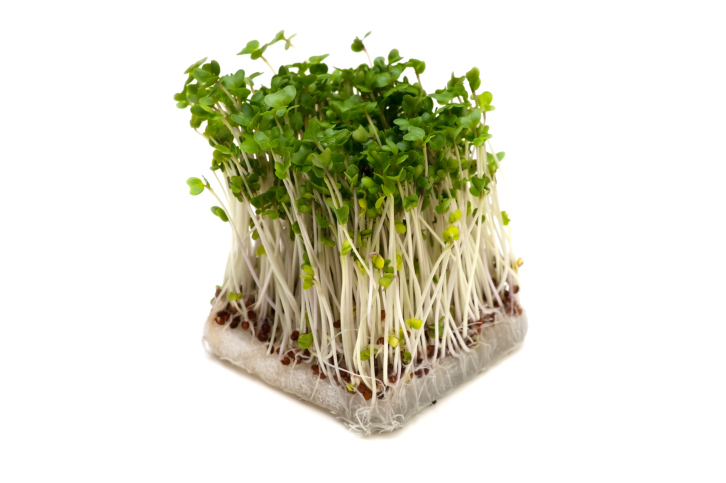Mom was right (again) and broccoli is good for you, according to researchers from the University of Pittsburgh School of Medicine and Johns Hopkins Bloomberg School of Public Health. People who drank a beverage made with broccoli sprouts dramatically increased their excretion of benzene and other toxins produced by inhaling polluted air, and that could mean lower risks for respiratory diseases including cancer. The findings were published recently in Cancer Prevention Research.
Broccoli and other cruciferous vegetables contain high amounts of a compound called glucoraphanin. When broccoli is chewed or swallowed in a drink, glucoraphanin is converted into sulforaphane, which has been shown in animal studies to lower cancer risk. Senior investigator Thomas Kensler, Ph.D., a professor of pharmacology and chemical biology at Pitt who is also on the faculty of Johns Hopkins, and his colleagues from Johns Hopkins, the University of Minnesota and Qidong Liver Cancer Institute in eastern China had been giving volunteers a tea made from boiled broccoli sprouts, which contain the highest concentrations of glucoraphanin, as part of cancer prevention research they were conducting in Qidong. 
During the years they worked in Qidong, they realized that air quality had been getting worse and they wondered if the beverage had any effect on the body’s metabolism of inhaled pollutants. With help from commercial processors in the U.S., they made a freeze-dried powder containing glucoraphanin and sulforaphane from 1.5 tons of broccoli sprouts and got some advice about how to make it taste better when they reconstituted it at the Chinese trial site.
For the 12-week trial, nearly 300 people in a rural area near Qidong were randomly assigned to drink a half-a-cup of nightly of a beverage consisting of sterile water as well as pineapple and lime juices either with or without the broccoli sprout powder. The researchers then regularly tested their blood and urine for markers of the inhaled pollutants.
Even on the first day of the study, those who drank the broccoli sprout beverage excreted 61 percent more benzene, a carcinogen, in the urine than those who got the placebo beverage. That effect lasted through the study period. Urine levels of the irritant acrolein also increased by 23% for the duration of the study.
It makes sense that reducing the toxin burden of the body is good, but it’s too soon to tell whether detoxification by broccoli sprout will translate into long-term health benefits, Dr. Kensler said.
“There’s a lot of hype around foods and disease prevention and maintenance of health, but not as much science,” he noted. “We’re trying to develop the science so that people can make better decisions about what they do and don’t want to eat.”
The scientists suspect that the broccoli sprout compounds turn up the activity of a detoxification pathway; their next steps include figuring out exactly how that works, and how much is enough to be effective. Meanwhile, finish your broccoli.









